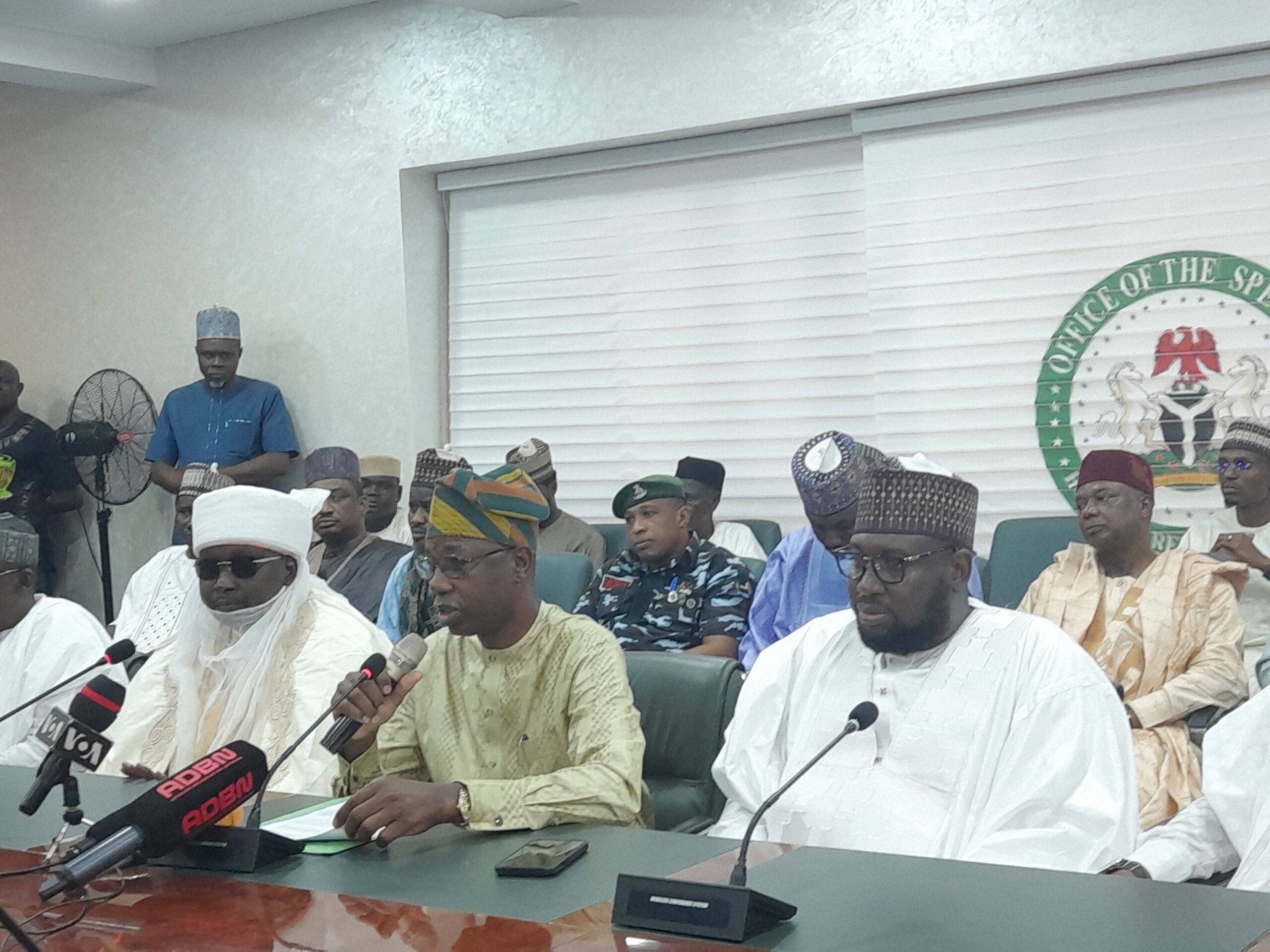News
Nurses Drag Council To Court Over Verification Guidelines

Some Nigerian nurses and midwives have threatened to take legal action against the Nursing and Midwifery Council of Nigeria over the new certificate verification guidelines.
The nurses, Desmond Aigbe, Kelvin Ossai, Catherine Olatunji-Kuyoro, Tamunoibi Berry, Osemwengie Osagie, Abiola Olaniyan, Idowu Olabode, and Olumide Olurankinse, disclosed this in a pre-action notice letter served by their counsel, Adelewa Williams & Partners.
The NMCN, in its revised guidelines, stated that applicants seeking verification of certificates from foreign nursing boards and councils must possess two years of post-qualification experience from the date of issuance of the permanent practising licence.
Following the new guidelines, nurses staged protests at the council’s offices in Abuja and Lagos, respectively, to express their displeasure over what they described as an attempt to hinder their freedom to pursue career opportunities, urging it to address nurses’ welfare, salary scale, shortage of workers, and other rights.
The pre-action letter which was addressed to the Registrar of the NMCN, Faruk Abubakar, and dated February 22, 2024, was signed by the Managing Director of Adelewa Williams & partners, Adelewa Williams.
The letter received by the Secretary-General to the Registrar of the council on February 23, 2024, was titled, ‘Pre-action notice: Notice to cease and desist from implementing the revised guidelines for verification of certificate(s) with the Nursing and Midwifery Council of Nigeria issued under the hand of the registrar of the council on February 7, 2024’.
The counsel for the nurses explained that the council had always regulated the verification process of Nigerian-trained nurses and midwives to which effect the guideline currently in force was issued on May 21, 2021, and provides for a three-stage process.
They, however, alleged that with the new verification process, an unemployed applicant cannot apply for verification of their certificate, since a letter of good standing must emanate from the applicant’s place of work.
They also stated that the council is setting the criteria for employment of Nigerian nurses by foreign employers and training institutions since the applicant must compulsorily obtain a letter of good standing from their place of work, a criterion that may not be requested by the foreign board(s).
The letter read, “The fate of the applicant is placed in the hands of the chief executive officer of the applicant’s place(s) of work, and where such officer refuses to give such letter, the applicant will be left with no remedy.
“This policy is in sharp conflict with the council’s policy of mandatory continuing education programmes for nurses and midwives wherein healthcare practitioners are enjoined to frequently update the knowledge in the healthcare field with a view to enhancing the quality of healthcare delivery.
“Evidently, the ‘revised guidelines’ for verification is unconstitutional, arbitrary in nature, designed in bad faith and against the interest of the nursing and midwifery profession and its practitioners, and in utter disregard of the fundamental human rights of Nigerian trained nurses and midwives as enshrined in the Constitution of the Federal Republic of Nigeria and as well the Nurses and Midwifery Act of Nigeria Act in a bid to prevent the migration of Nigerian trained nurses and midwives from pursuing career and training opportunities in a foreign land which in effect infringes the Constitutional rights to freedom of movement of these Nigerian trained nurses and midwives.”
“Furthermore, our client demands that the council issue a memo retracting the memo of February 7, 2024, within 72 hours of service of this notice on the council. Failure upon which an action shall be instituted against the council seeking the nullification of the repugnant revised guidelines,” it added.
News
Finally, IGP approves hunger protests across Nigeria

The Nigerian police has finally approved the planned nationwide protests and outlined conditions for participants.
The Inspector General of Police, Kayode Egbetokun, revealed this on Friday while addressing journalists in Abuja.
He urged all groups planning to participate in the proposed nationwide protest to submit their details to the Commissioners of Police in their respective states.
The police boss said this was to ensure the protest was peaceful.
Egbetokun said, “We acknowledge the constitutional right of Nigerian citizens to peaceful assembly and protest.
“However, in the interest of public safety and order, we urge all groups planning to protest to provide necessary details to the Commissioner of Police in the state where the protest is intended to take place.
“To facilitate a successful and incident-free protest, they should please provide the following information: state the proposed protest routes and assembly points; expected duration of the protest; and names and contact details of protest leaders and organisers.”
The police boss said the information expected from the organisers also include measures to prevent hijacking by criminal elements, as well as key identifiers for possible isolation of potential troublemakers.
By providing the information, he said, the police will be able to deploy adequate personnel and resources to ensure public safety.
He said the police needed to know the specific routes and areas for the protest to avoid conflicts with other events or activities.
Mr Egbetokun said the police will “establish clear communication channels with protest leaders to address any concerns or issues that may arise; minimise the risk of violence, property damage, or other criminal activity.
“We encourage all protesters to cooperate with the police, obey the law, and adhere to global best practices for peaceful assembly to guarantee a safe and successful exercise of their rights.
News
Reps North-West Caucus Beg Youths, Citizens In The Region Not To Join Planned Protest

News
Reps Applaud FCT Minister, Wike On AICL Improved Revenue, Infrastructure

-

 News21 hours ago
News21 hours agoIwuanyanwu was a Heavyweight in all ramifications-Abaribe
-

 News20 hours ago
News20 hours agoTinubu, Southern Govs Mourn Iwuanyanwu
-

 News20 hours ago
News20 hours agoSokoto Governor, Aliyu’s Wife Holds Lavish Birthday As Guests Spray Dollar Notes On Her Amid Hunger, Hardship
-

 News19 hours ago
News19 hours agoProtest: President Tinubu In Closed-door Meeting With Traditional Rulers (Video)
-

 News21 hours ago
News21 hours agoTinubu’s Presidency Is Failing Nigerians – Afenifere
-

 News16 hours ago
News16 hours agoNationwide protest: ‘Airport Is Filled Up, Govs, Senators, Reps, Ministers Traveling Abroad’ — Fayose
-

 News21 hours ago
News21 hours agoIGP Orders DPOs, Their Men To Storm Vulcanizer Shops Ahead Of Planned Nationwide Protest
-

 News20 hours ago
News20 hours agoCourt fixes date to hear suit challenging Shaibu’s reinstatement







